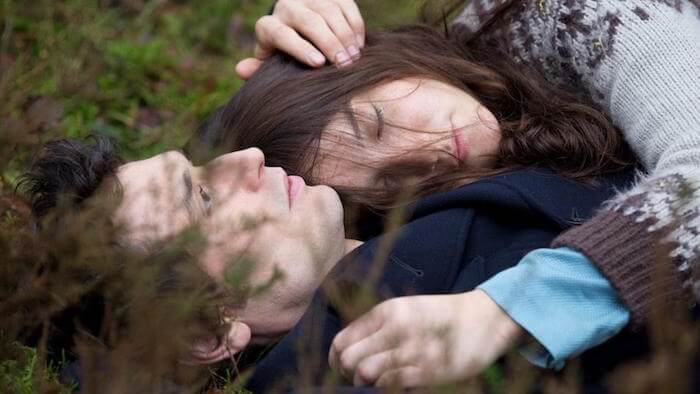This Brother and Sister Fell In Love; What Happened Next Will Shock You: Marguerite & Julien


Courtesy of Sundance Selects
Marguerite & Julien
Directed by Valérie Donzelli
Opens February 26 at the IFC Center
An ahistorical period piece that really swings for the fences, Marguerite & Julien tells of a forbidden love only further stoked by any and all attempts to snuff it out—of which there are many, because the central couple here just so happen to be brother and sister. Bringing to the screen a previously unproduced script that Jules and Jim’s Jean Gruault wrote, once upon a time, for François Truffaut, the French filmmaker Valérie Donzelli (Declaration of War) has made an exuberant tragedy that’s part Nouvelle Vague swoon, part pervy-historical Catherine Breillat fairy tale, and all unapologetic hot mess. Jeered upon its premiere in competition at Cannes 2015, where one British critic deemed it “buttock-clenchingly embarrassing,” Marguerite & Julien nonetheless hasn’t quite earned the reputation that precedes it—if it’s too misbegotten to fall head over heels with, it’s also too sensitively wrought to dismiss outright.
Neither tortured about their feelings for each other nor particularly hesitant about expressing them, Marguerite and Julien de Ravalet don’t really compute as relatives—the fact of their siblinghood here just makes the amour more fou. (Never mind that these are real historical personages.) As small children the constant companions are well behaved, but once Julien (Jérémie Elkaïm) returns from boarding school to his family’s sprawling chateau, the hormones take over once and for all: He and Marguerite (a standout Anaïs Demoustier) can’t keep their eyes off each other, and soon they’re stealing away from the dinner table for a more hands-on re-acquaintance.
But naturally, the disapproval surrounding the pair grows ever more grave. With its binocular zooms and loamy pastels (the film was shot by La France’s Céline Bozon), Marguerite & Julien shines in particular as it shows the paramours’ passion flowering forth even at the narrowest of opportunities, like some sort of rampaging weed that also happens to be the most incorrigibly beautiful thing in the garden. Marguerite’s family marries her off to a tax collector, and eventually banishes her for her own supposed good, but even that can’t keep the lovers down: She strikes up a cloak-and-dagger epistolary correspondence with Julien, who is soon thereafter kicking down doors to free her.
Flashing anachronisms like buttons on a leather jacket, Donzelli’s Renaissance-era romance features pop songs, cameras, and helicopters; the director also frames the whole thing as a bedtime story told to children at an orphanage. It feels like she’s working too hard to sell this incest as timeless—though then she also goes and shoots the whole thing in the foot by realizing only half the couple. Demoustier’s Marguerite, a starry-eyed young woman with a radiant full-moon face, also willingly plays hardheaded opponent of the status quo; by contrast, Elkaïm’s Julien just seems to be all one-note smolder.
It is almost in spite of itself, then, that this movie—lopsidedly conceived and as unsubtle as a sonic boom—ravishes at all, as it does, however fitfully, right down to its slingshot final passages. By so willfully courting their own annihilation, and by thus entering into legend, Marguerite and Julien wind up defying the rules all over again. It turns out that their love has sent them crashing into immortality.
You might also like 




















